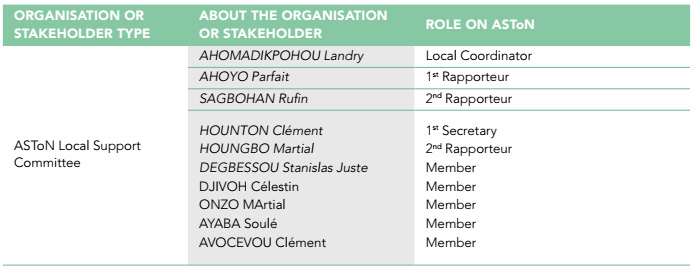Land registry
Focus area for ASToN
 Sèmè-Podji’s chosen policy area is Land registry
Sèmè-Podji’s chosen policy area is Land registry
Sèmè-Podji currently has a paper-based system for land registry, which doesn’t cover all six arrondissements. A fundamental challenge for the city surrounds land titling and the administration of land, because land owners cannot easily access their titles and public services don’t have access to the data needed to conduct their services.
The old system of archiving land registration is therefore blocking progress in the development of public services that could ameliorate the quality of life of Sèmè-Podji’s citizens. Land registry is a priority for Sèmè-Podji because the local authority sees registering land as an enabler for a wide range of activities, including the collection of taxes (“le foncier touche à tout”). It would ensure a better quality of life of citizens and ensure greater transparency for elected representatives and public activities.
For Sèmè-Podji, accurate and retrievable land registration data is associated with the securing of property rights and reduction of fraudulent transactions, for guaranteeing loans for businesses, payment of bank and city taxes, and contributing to neighbourhood peace because personal conflicts often occur surrounding the ownership of land.
Findings: the starting point for addressing these problems
The following findings set out the starting point for Sèmè-Podji as they work to address Land registration. Based on research conducted over the course of Phase 1, they describe the interlinked strengths and challenges that need to be taken into account.
Sèmè-Podji has not completed many digital projects and has yet to finalise a digital transformation plan
Sèmè-Podji is only just developing its approach to digital transformation, which has seemingly been directed towards the introduction of “Seme City” in 2021. Up to now, the city has not completed a significant digital transformation project.
Investment in Sèmè City is not matched by investment in the local authority
The city as a whole has growing investment, particularly as a result of the Sèmè City project, however the lack of resources available to the town hall itself presents a significant challenge.
While there is high commitment from the mayor, there is some reluctance of public servants to engage in the project
There is willingness of the city mayor to forge new relationships and high commitment from municipal authority executives. This is contrasted with the low capacity and willingness of members of the town hall to engage in digital projects.
Skills and equipment surrounding digital are lacking
There exists low internal skills, competences and equipment to manage digital projects, and external competences and equipment are also relatively low whilst the digital foundations are still being put into place.
The city has a clearly defined problem area that can be addressed as one of its first digital projects
The city authority has a clearly defined problem area, which is a well thought-through starting point and has the potential to unlock further avenues for other digital services that can be built on top of a land registry once it has been completed.
Next steps
Sèmè-Podji does not have a digital transformation plan, and it is hoped that ASToN’s Local Action Plan will help to inform the overall strategy.
Stakeholders involved in the local ASToN group

Participating in the ASToN network



